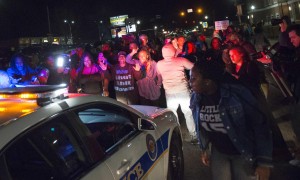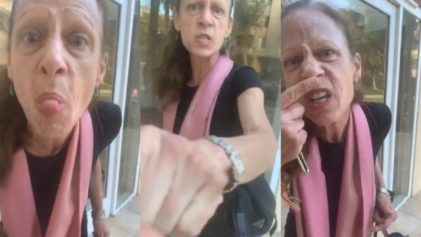
In an MSU Today article, Michigan State University criminologist Jennifer Cobbina reveals the thoughts of several protesters she interviewed. According to Cobbina, many Black protestors believed they were already prejudged by police. They said police automatically viewed them as suspects.
“The protesters did not view police brutality and discrimination as an isolated phenomenon,” said Cobbina, who published her research findings in The Journal of Crime and Justice. “Rather, they believed that it’s reflective of broader social inequality and discrimination in society at large.”
Cobbina and her team of researchers interviewed 81 people, 75 Blacks and six whites. Some of the comments from the Black interviewees were harsh.
A woman named Susanna said police, “view us as dogs. Our lives are [considered] worthless. They don’t think that we matter.” Another Black interviewee said police view Black males as “suspects first, civilians second.”
Black Ferguson residents had valid reasons to be suspicious of the police. An extensive investigation of the Ferguson criminal justice by the U.S. Department of Justice found local police were deliberately targeting Black residents with fines and jail sentences for minor crimes like jaywalking. According to The Atlanta Black Star, the city was using these excessive fines to supplement the city’s budget. The City of Ferguson has recently accepted a DOJ agreement that bans this practice and also implemented other reforms to its criminal justice system.

Jennifer Cobbina
According to Cobbina’s study, the 2014 protests were an explosion of pent-up frustration that had been building for a while. Cobbina, a Ferguson resident, also interviewed Baltimore residents after the killing of Freddie Gray. She is writing a book about Ferguson and Baltimore residents’ experiences with the police.
“The social unrest in Ferguson was not simply in response to the death of Michael Brown, but rather widespread racial and social injustice on the part of the police and larger society that produced the conditions in which this young man was killed,” said the study.
In an article in The St. Louis Post-Dispatch, Kevin Cokley, author of The Myth of Black Anti-Intellectualism, and a psychology professor at the University of Texas at Austin, said police need to show a concerted effort to build trust with the Black community.
“If police truly want to improve their image and reputation among Black citizens, they must first acknowledge that the Black community’s mistrust of police is rational and justified,” said Cokley. “Police must also admit racial bias exists not only in the attitudes and behaviors of some individual police officers but also in the institutional culture of police departments where the unwritten rule of the ‘blue code of silence’ protects officers who harbor racist attitudes and engage in racially discriminatory behavior.”


